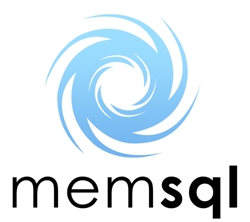MemSQL may not have the sexiest name or, as a database management software startup, live in the sexiest industry, but that doesn’t mean it isn’t appealing to investors. The Y Combinator Winter 2011 grad is announcing today that it has raised $2.1 million in seed funding, led by an impressive list of angels and VCs. The stalwart list includes venture backing from First Rounds Capital, New Enterprise Associates, Start Fund, SV Angel, and Y Combinator — as well as participation from celeb tech investor Ashton Kutcher, early Google employee and FriendFeed Co-founder Paul Bucheit, Loopt Founder Sam Altman, Guy Oseary, and several others.
MemSQL will be using this infusion of capital to complete its move into new offices in downtown San Francisco as well as adding to its current team of six.
But just what is it about this young startup that has investors fired up? MemSQL is a scalable in-memory database that, according to co-founder and CEO Eric Frenkiel, is up to 30-times faster than relational databases on disk. The database primarily focuses on online transaction processing (OLTP) workloads, and aims to deliver speed and through-put advantages, while retaining SQL and ACID compliance without resorting to NoSQL or caching technologies.
While online transaction processing software may be unknown to some, it helps manage transaction-oriented applications in data entry and retrieval, work that is integral to a number of industries, including banking, airlines, supermarkets, and manufacturers. As such, it’s a space that is poised to grow from $20 billion to $60 billion in value over the next five years, Frenkiel said. This is largely due to the fact that the size of data sets being employed by major web companies is doubling every 18 months.
Today, memory is cheap and abundant, and these large data sets can finally fit into memory systems. So, while input/output remains sluggish in the cloud, so companies that want to optimize their data sets and achieve performance in the cloud is to go into memory. Google, Facebook, Twitter, Zynga, and more, already have their datasets living in memory and backed-up on disk.
MemSQL has built a database from the ground up to allow applications to read and write at the same time, run analytics in realtime — all in an effort to provide a faster alternative to MySQL on disk — 30 times faster, according to the team. Plus, MemSQL’s software “speaks MySQL protocol”, so, according to Frenkiel, that means that there is no need for a code change for applications that talk to MySQL databases.
“If you want to achieve real performance in the cloud, you need to take the database into memory, and all the better if you can use SQL to access it”, Frenkiel says.
It’s also likely that MemSQL won over investors based on the credentials of its team, counting former Facebook, Oracle, and SQL server engineers among its ranks. It also helps that Frenkiel’s co-founder, Nikita Shamgunov, spent 6 years as a senior database engineer at Microsoft, holds a masters and PhD in computer science, has several patents to his name, and is a world medalist in computing machinery contests.
Not to mention, MemSQL’s first customer is fellow Y Combinator Winter 2011 alum, LikeALittle, which hit 20 million pageviews within 6 weeks of its launch and raised a round of seed funding from an equally impressive list of investors (several of whom also invested in MemSQL). LikeALittle has since raised another $5 million from Andreessen-Horowitz, among others.
Seeing as LikeALittle is already being valued at $35 million, the fact that MemSQL is providing much of the technology that has allowed its fellow startup to scale and perform well in spite of a huge influx of traffic (and resulting data), the $2.1 million investment seems a sound one, to say the least.
To get invitations to MemSQL’s private beta, visit their homepage here. And they’re also hiring, so for developers looking for a startup with a hacker-centric culture (and former Facebook talent), click here.
